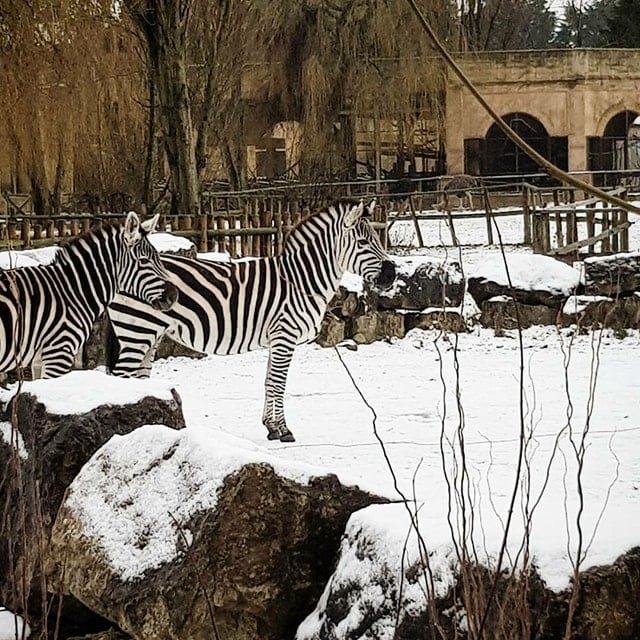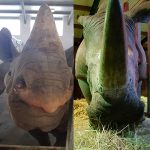Meet Our Zebra – Vendela & Guiness

Make sure you see our pair of zebras here at Flamingo Land. We have a female called Vendela, who is 10, while her partner, our male is called Guiness and he is 11. The zebras at Flamingo Land are all Grant’s zebras, which are the smallest subspecies of plains zebra. In the wild these are found in countries such as Kenya, Tanzania and Zambia. They can be found in grassland and savannah woodland. Grant’s zebras have vertical stripes at the front, horizontal stripes on their back legs and diagonal stripes in between. Every zebra has a slightly different pattern, so their stripes can be used to identify individuals.
Here at Flamingo Land they share their home with some of our Giraffes and Ostriches. Because they all live in the same habitats in the wild they are quite happy to share an enclosure – in fact, it makes life more interesting for them.
Although zebras may remind you of a horse, they don’t neigh – instead they make a barking noise. They also communicate with facial expressions and body movements. Unlike some other species of zebra, Grant’s zebras are not endangered. In fact, plains zebras are the most abundant grazing animals in Africa.
Wild zebras live in family groups, usually led by a dominant stallion. Zebra foals are able to stand up almost as soon as they are born and will start eating grass within a week. They are weaned at 7-11 months and will disperse from the group at 1-3 years old. Young males usually form bachelor groups until they are about 4 years old and able to compete for mates.
Plains zebras are grazing animals, feeding on a variety of grasses. They can survive on coarse vegetation with very little nutritional value but they have to have daily access to drinking water. Lions and hyenas will hunt zebras, which may bunch together in a herd if attacked, confusing the predator with their striped patterns. Alternatively, they may make a run for it, reaching speeds of up to 40mph. If all else fails, zebras will kick out with their sharp hooves and use their teeth to defend themselves.


